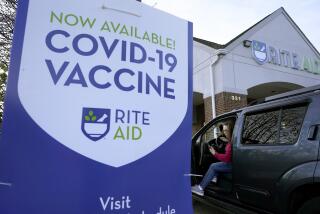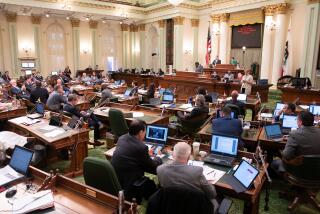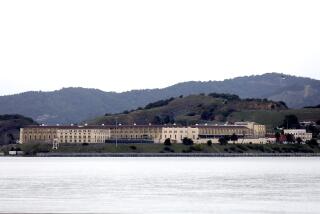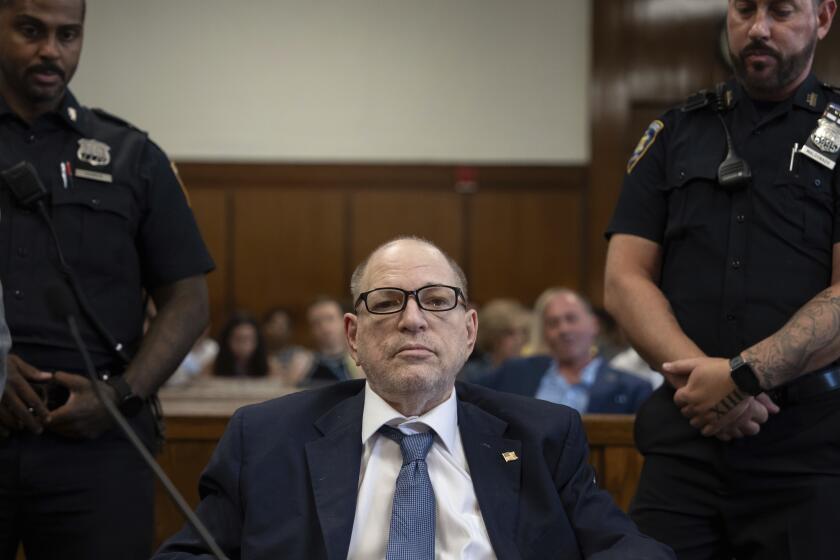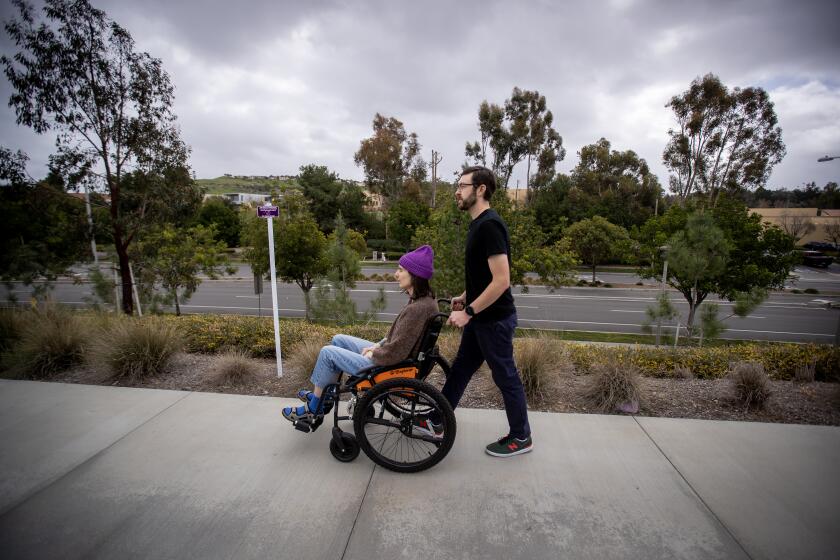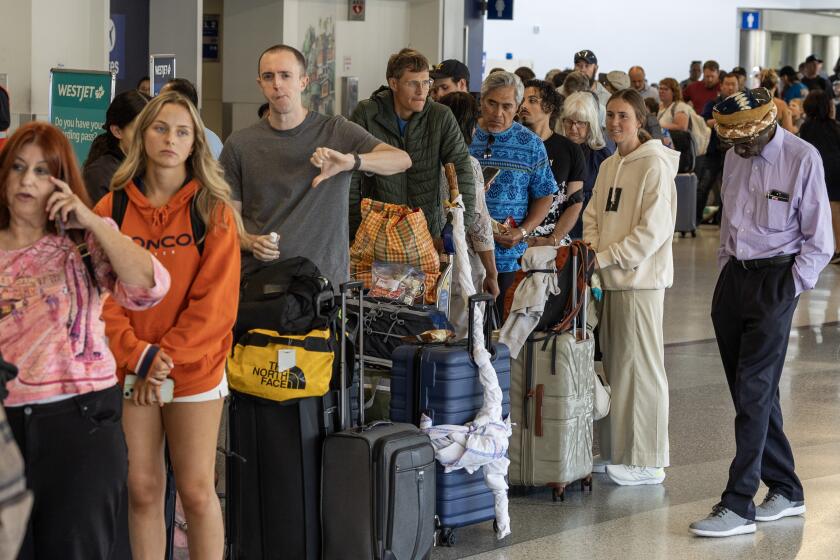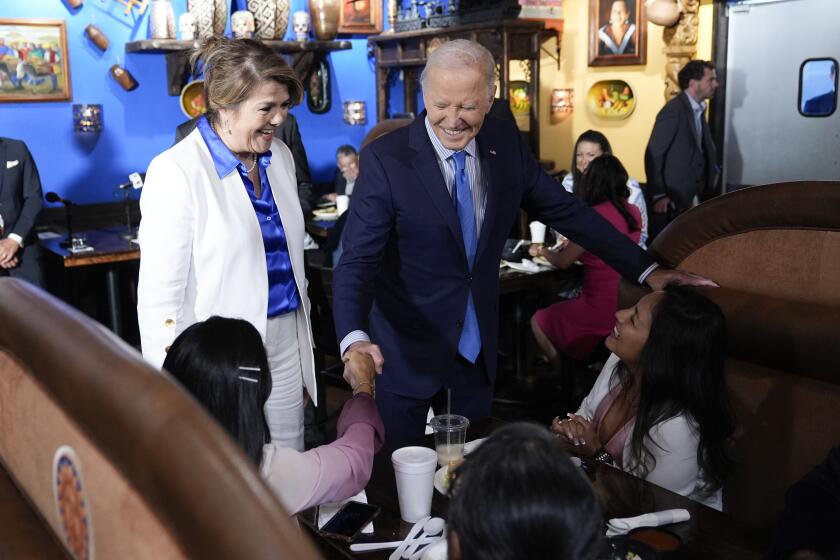Newsom vows changes after vaccine earmarked for hardest-hit communities improperly used by others
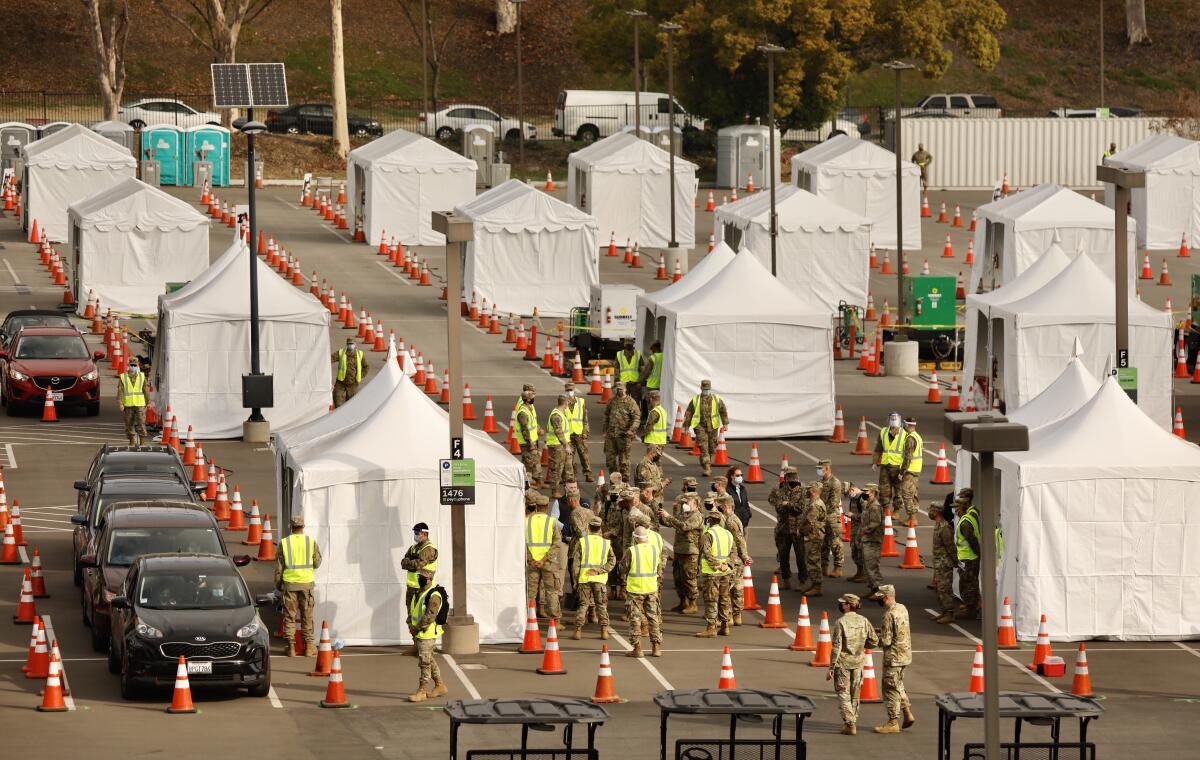
In Los Angeles, the rumor spread like wildfire through group texts and email chains: The government was testing the appointment system at a new COVID-19 vaccination site at Cal State L.A., and you could help by using a special access code to sign up for a shot.
In the Bay Area, the gossip took a slightly different form: Doses at the Oakland Coliseum were about to expire, and you could do your part by making an appointment, again, with a special access code.
The problem, of course, was that none of this was true. There were no expiring doses at the Oakland Coliseum earmarked for use with special codes, and the Cal State L.A. site had no appointment testing program.
The access codes ping-ponging across two of California’s largest metropolitan areas were actually a key part of a program designed to help get life-saving COVID-19 vaccines into California neighborhoods hit hardest by COVID-19. Intended to address inequities in the distribution of the vaccine, the program instead was being misused by wealthier residents who work from home and were grabbing appointments for themselves.
Gov. Gavin Newsom announced Tuesday that California would be making changes to the program following the Times report about the abuses.
The loophole in the program came about due to its reliance on special access codes to allow users to book appointments through the state’s vaccine appointment registration system, called My Turn. State officials then asked non-profits, faith-based groups, labor unions and other organizations to circulate the codes to their members for the appointment at the sites in Oakland and Los Angeles.
But those codes also began circulating in emails and group texts among the wealthier, work-from-home set in Los Angeles who are not yet eligible for the vaccine. Many were younger than 65.
During a mobile vaccination clinic at the Ramona Gardens public housing development on Sunday in Boyle Heights, Newsom said, it was “pretty clear” that “not everyone was from that community.”
“We don’t like to see those abuses,” Newsom said at a news conference in Sacramento.
It’s unclear how many shots have been misappropriated, and Newsom did not provide details on what changes would be made to the program.
Many people who used the access codes said they didn’t know they were doing anything wrong, and said they would not have signed up if they had known the codes had been earmarked for more vulnerable residents. Several said they regretted getting vaccinated.
When Bryce Schramm’s phone pinged Monday afternoon with a text message about a special code to book a vaccine appointment, the 31-year-old was skeptical. He thought it sounded “sketchy,” at best. But then he received a second code a few minutes later, this time in an email that specified that the vaccine site was testing their appointment booking system.
“Every step of the way, I kept being like, ‘I’m going to get weeded out,’” he recalled. He couldn’t believe his luck when he was able to book an appointment for the very next day.
But wanted to make sure he wasn’t doing anything wrong, so he called the state COVID-19 hotline number listed at the bottom of his confirmation email.
Even after he told a woman who answered the hotline that he was 31 and worked in the entertainment business, she ok’d the appointment, Schramm said.
Schramm canceled his appointment later that night after reading the Times report, horrified by what he had almost done, despite trying to be as diligent as possible.
Others who followed the rumors didn’t find out what the access codes were for until it was too late. Several said they were uncertain what to do about their second shots.
A 32-year-old white man who works in the tech industry and lives in Berkeley said he discovered the real purpose of the codes just after taking his shot. While waiting in the recovery bay at the Oakland Coliseum his phone buzzed with a push alert for the report from the Times.
The man, who did not want to give his name because he had received the code from work contacts, said there should have been safeguards on the website to explain what the codes were actually for.
“It’s very confusing and perplexing how little information there is about this,” he said.
As has been the case throughout the vaccine rollout, wherever there is a slight opening, the resourced and tech savvy find their way in.
Public health director Dr. Barbara Ferrer told Los Angeles County supervisors Tuesday that the access-code issue was partly caused by problems with the state’s vaccine appointment registration system, My Turn.
“Every time we create what we think is a way to reserve slots, and appointments for the people in the communities that need to get vaccinated the most, the codes get stolen, or they get distributed to other people, and we’ve got problems,” Ferrer said. “But that doesn’t mean we can’t keep trying.”
Some providers have already adjusted their plans based on the propensity for the codes to spread. In Alameda County, school officials decided not to circulate the access codes when they hosted a FEMA mobile vaccination clinic in Hayward last week, according to Alameda County Office of Education spokesperson Michelle Smith McDonald.
Instead, the district targeted specific education staff in high-impact zip codes. Those people were then sent a link to make an appointment through a separate scheduling system. They didn’t receive the codes until they were on site, where they waited in line to officially register on the My Turn website on iPads.
“We just knew we wanted to be protective of that code,” McDonald said. She also noted that their more time-intensive process was possible because they were a smaller vaccine site, serving about 250 people a day over three days, and the same system would be much harder to replicate at a mass vaccination site.
One Los Angeles-area labor union received a vaccine appointment access code from their California parent organization and shared it by email and text message with a “limited number of workers” who are at high risk for contracting COVID-19, said Blanca Gallegos, a spokeswoman for SEIU Local 99.
Those workers are childcare providers and employees of a Los Angeles Unified School District warehouse in Pico Rivera who have been handling the district’s grab-and-go meal program during the pandemic, Gallegos said.
“The majority of our population is black and brown workers,” Gallegos said. “They’re essential, and they’ve been working throughout the pandemic. We wanted to do our part to ensure that they had access to the vaccine.”
Initially, the MyTurn registration page kept crashing, Gallegos said, because “there were a lot of folks trying to get on.”
“We told people to just keep trying,” Gallegos said. “This also happened with the testing initially, so people know it might take a while. People are used to continuing to try.”
More to Read
Sign up for Essential California
The most important California stories and recommendations in your inbox every morning.
You may occasionally receive promotional content from the Los Angeles Times.

